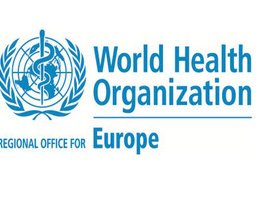
Learning from Ireland: expanding the role of nurses and midwives to improve health outcomes
(Originally posted on WHO Regional Office for Europe website: http://www.euro.who.int/en/health-topics/Health-systems/health-workforce/news/news/2017/12/learning-from-ireland-expanding-the-role-of-nurses-and-midwives-to-improve-health-outcomes)
In a move to better meet patient needs and expand access to health services, Ireland has made it possible for nurses and midwives to prescribe medicinal products.
Primary health-care providers across the WHO European Region are under great pressure to provide high-quality, patient-centred care, despite heavy workloads and the ever-growing burden of noncommunicable diseases (NCDs). In some countries, such as Ireland, these challenges have triggered changes in the health workforce.
As of April 2016, a total of 894 nurses and midwives in the country were registered to prescribe medicinal products. This includes 193 advanced nurse practitioners in 53 specialties and 8 advanced midwife practitioners in 6 specialties, all registered with the Nursing and Midwifery Board of Ireland. It is not necessary to be an advanced practitioner to prescribe.
“Skilled health professionals like nurses and midwives can sometimes be underutilized by health systems,” says James Buchan, Senior Adviser on Human Resources for Health at WHO/Europe. “Providing advanced practice opportunities, and enabling them to prescribe, helps optimize their contribution to patient care. This can lead to more efficiency in health systems, and also better health outcomes, as well as improved career prospects and a higher degree of job satisfaction among the nurses and midwives themselves.”
Advanced practice nurses help achieve better outcomes for patients
While the overall number of prescribing nurses and midwives has remained small in numerical terms since the introduction of the regulations in 2008, the impact has been significant. An independent evaluation reported that expanding nurse roles in Ireland has led to, among other things:
improved continuity of patient care;
reduced admission rates;
reduced workload of doctors;
reduced waiting times for services;
improved family and carer satisfaction; and
increased professional development and satisfaction of nurses and midwives.
The evaluation also showed consensus among clinical stakeholders that these new advanced roles are able to deliver quality care to patients while simultaneously reducing the workload of primary care doctors. For their part, doctors do not see these new advanced roles as encroaching on their so-called territory, but rather appear to value and respect the contribution of these nurses and midwives.
Expansion of role through changes in legislation and regulation
The new role for nurses and midwives was achieved through a 2-part approach, which included amendments to the 2006 Irish Medicines Board (Miscellaneous Provisions) Act and the introduction of new professional regulations.
In 2007, a 6-month education programme was established to support nurses and midwives with their new advanced roles and responsibilities. Nurses and/or midwives who complete the 6-month post-registration education programme become Registered Nurse Prescribers. With authority from their health service provider, they are able to prescribe a range of medicinal products within their scope of practice.
Inspiration to countries
Advancing the role of nurses and midwives has allowed Ireland to expand access to health services and better meet patient needs. It offers an important example for other countries as they look to make changes that will move them towards universal health coverage.